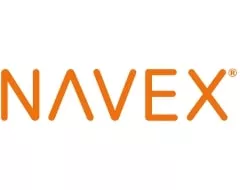As the EU Whistleblower Directive is being adopted in more and more EU member states, we are delighted to welcome Belgium's Van Olmen & Wynant as a WhistleB partner. While the EU Directive has not yet been transposed in Belgium it expected to become law in just a few months, introducing Belgium's first ever comprehensive whistleblower protection law. Van Olmen & Wynant and WhistleB are ready to help those companies that want to prepare for compliance already now.
In the article below, Van Olmen & Wynant provides a view on the state of play in the Belgian market, and explains why the firm partnered with WhistleB.
"WhistleB offers a great and fast alternative for setting up a new internal system which otherwise requires a lot of time and energy... For the Belgian market it is also a major advantage that the tool works in Dutch and French." Pieter Pecinovsky, Van Olmen & Wynant
1. Tell us a little about VOW
Van Olmen & Wynant is an independent law firm offering quality services in employment and corporate law and litigation. Established in 1993, the firm is a stable and recognised player in the Brussels legal market. It is also a founding member of L&E Global, an international alliance of employment law firms, operating in over 30 countries. Van Olmen & Wynant's Employment Law team is specialised in European and Belgian law and can assist companies with their legal questions regarding whistleblower reporting and protection systems in English, Dutch and French.
2. How do you expect the EU Whistleblower Protection Directive and its national transposition to affect companies in Belgium?
The authorities are still working on the transposition (the final act should be passed by Parliament in July 2022), but it is already clear that Belgium will go further than the EU Directive. As an example, the government intends to also include breaches regarding social fraud in the scope of the Belgian whistleblower protection law. This will mean that employees will also be protected if they report on violations of employment law and social security law. Belgium also intends to impose strict enforcement mechanisms for companies that do not comply with the whistleblower reporting and protection rules, including significant administrative fines and criminal prosecution.
Employers will be required to install internal reporting channels and to duly follow up reports. Since whistleblowers will be legally protected when reporting externally, employers will also face external reporting issues if employees and other whistleblowers choose to directly report to the competent authorities. It is therefore important for companies to provide a decent, trustworthy and easily accessible internal channel. Such a system can be provided by WhistleB.
3. When it comes to anti-corruption or corporate misconduct, what are the most significant issues that your clients currently face, or will face over the next few years?
The modern, digital and flexible way of working makes it more difficult for companies to effectively monitor the activities of their employees. It has never been an easy task to maintain a complete overview. Even the best internal policies and control procedures do not mitigate the risks resulting from a certain degree of autonomy and employee activities, which can sometimes lead to misconduct. Abuse of autonomy and power within the company can consist of theft of goods or financial assets, harassment or violations of safety measures, to name but a few. Speaking up against your colleagues or superiors is never easy, but a confidential and user-friendly internal whistleblower channel can definitely lower the barriers for employees who wish to end malpractices.
4. How might your clients benefit more broadly from complying with the new law?
As mentioned above, the new law will allow companies to install an efficient and confidential reporting system which can lead to greater internal transparency and to a bottom-up approach for preventing or ending malpractices and abuse of company assets. The whistleblower rules should not be seen as a new instrument for employees to attack their employers, but as an efficient way to solve problems and disputes internally. For instance, an employee might no longer directly report a matter to the external social inspection but first try to use the internal system which can prevent legal procedures. The whistleblowing procedure could also make it easier to identify severe violations of company rules which can lead an immediate dismissal.
5. Why did you choose to partner with WhistleB specifically?
WhistleB is a simple yet sophisticated online tool for creating an internal reporting channel. Its straightforward design and process make it very easy to use for reporters and for the persons who are appointed to follow up on the complaints or reports. The system allows the company to respect the legal deadlines for follow up, and to ensure that the necessary feedback and actions take place. The clear structure of WhistleB means that there is no need for training for the report manager, and whistleblowers can be reassured that their reports are taken seriously without getting lost in complex internal procedures. WhistleB offers a great and fast alternative for setting up a new internal system which otherwise requires a lot of time and energy. The system is also sufficiently flexible to fulfil the needs of any company, irrespective of size or activities. For the Belgian market it is also a major advantage that the tool works in Dutch and French.
Van Olmen & Wynant can help its clients to install an internal reporting channel through WhistleB, and draft internal policies to fit the needs of the company. Further, Van Olmen & Wynant can assist with questions regarding the use of the internal system, the scope of the legislation, consequences of external reports and whistleblower protection.
For legal questions relating to whistleblowing in Belgium, contact Gautier Busschaert (gautier.busschaert@vow.be) or Pieter Pecinovsky (pieter.pecinovsky@vow.be) at Van Olmen & Wynant.
Originally published 29 March 2022
The content of this article is intended to provide a general guide to the subject matter. Specialist advice should be sought about your specific circumstances.

